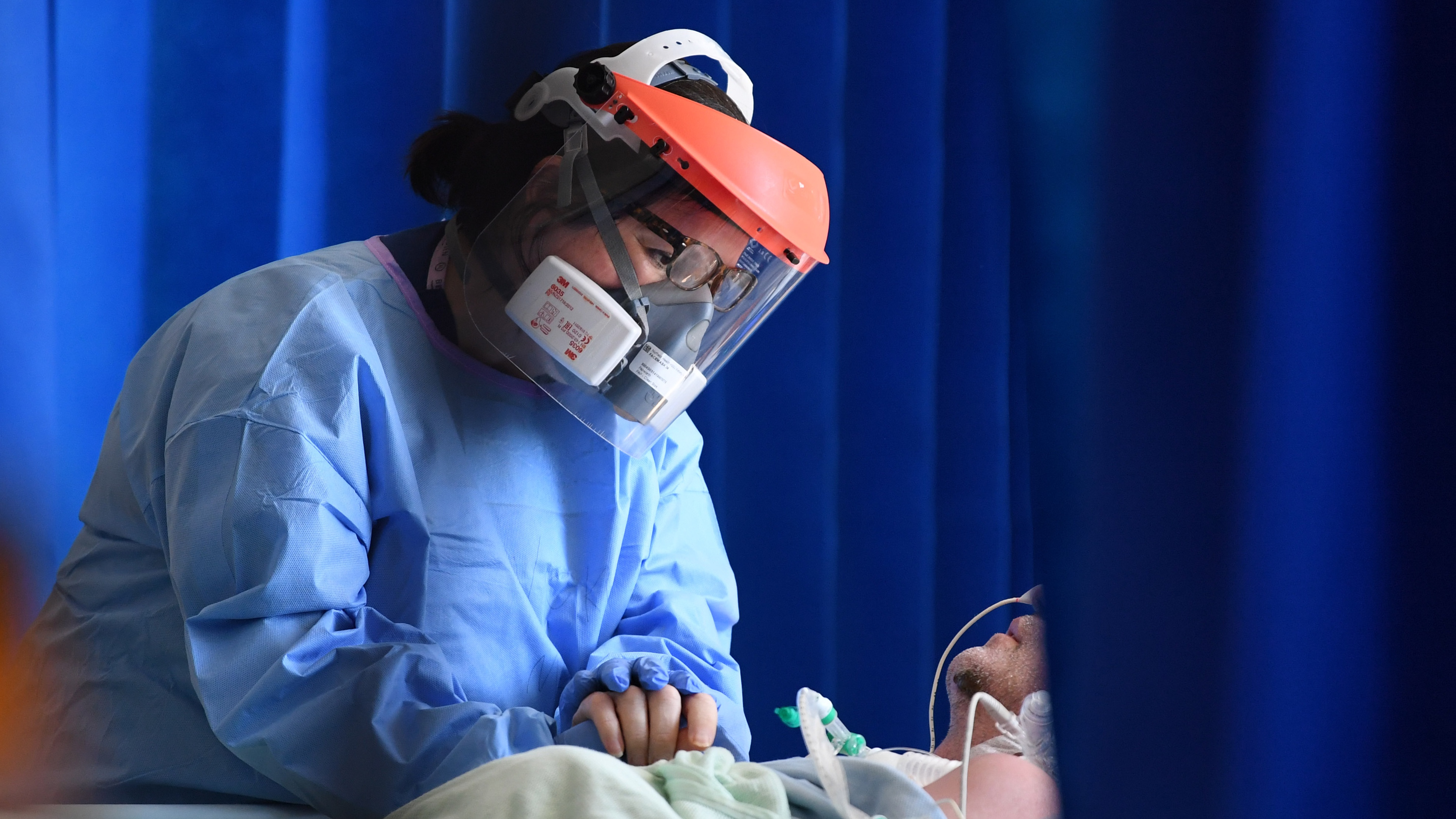‘Long Covid’ could be caused by combination of four syndromes, experts claim
National Institute for Health Research says persistent health impacts are still unclear

A free daily email with the biggest news stories of the day – and the best features from TheWeek.com
You are now subscribed
Your newsletter sign-up was successful
“Long Covid”, when patients experience lasting health impacts after recovering from a bout of Covid-19, could be caused by four different syndromes, research has revealed.
As thousands of survivors report a range of long-lasting symptoms, academics at the National Institute for Health Research - led by Chief Medical Officer Professor Chris Whitty - were asked to investigate the trend.
The research, published today, found the symptoms can be grouped into four separate categories: post-intensive care syndrome, post-viral fatigue syndrome (PVFS), permanent organ damage and long term Covid syndrome.
The Week
Escape your echo chamber. Get the facts behind the news, plus analysis from multiple perspectives.

Sign up for The Week's Free Newsletters
From our morning news briefing to a weekly Good News Newsletter, get the best of The Week delivered directly to your inbox.
From our morning news briefing to a weekly Good News Newsletter, get the best of The Week delivered directly to your inbox.
The experts also warned that “even children can suffer and it can’t be assumed that people who are at lower risk of severe illness and death from Covid-19 are also at low risk of lasting side effects”, the Daily Mail reports.
Also known as “ongoing Covid”, longer term impacts include damage to the lungs, brain, heart and cardiovascular system, as well as the kidneys, gut, liver and skin, the report says. Symptoms include anxiety, fatigue, shortness of breath, muscle pain and heart arrhythmias or rhythm problems.
The researchers also warned of the psychological damage caused by ongoing Covid, with patients experiencing “fatigue and brain fog in a way that’s consistent with PVFS”, an issue seen after enterovirus or rubella infection.
Dr Elaine Maxwell, the lead author of the report, said the “overwhelming message is this is not a linear condition”, adding that the “lack of distinction between these syndromes may explain the challenges people are having in being believed and accessing services”.
A free daily email with the biggest news stories of the day – and the best features from TheWeek.com
The report recommends coming up with a “working diagnosis for ongoing Covid-19” to help people get the support they need.
Although most people with Covid-19 recover within two or three weeks, it is “increasingly clear” that there may be “tens of thousands of people, if not hundreds of thousands, who have been left experiencing symptoms months after becoming infected”, The Guardian says.
Chas Newkey-Burden has been part of The Week Digital team for more than a decade and a journalist for 25 years, starting out on the irreverent football weekly 90 Minutes, before moving to lifestyle magazines Loaded and Attitude. He was a columnist for The Big Issue and landed a world exclusive with David Beckham that became the weekly magazine’s bestselling issue. He now writes regularly for The Guardian, The Telegraph, The Independent, Metro, FourFourTwo and the i new site. He is also the author of a number of non-fiction books.
-
 How the FCC’s ‘equal time’ rule works
How the FCC’s ‘equal time’ rule worksIn the Spotlight The law is at the heart of the Colbert-CBS conflict
-
 What is the endgame in the DHS shutdown?
What is the endgame in the DHS shutdown?Today’s Big Question Democrats want to rein in ICE’s immigration crackdown
-
 ‘Poor time management isn’t just an inconvenience’
‘Poor time management isn’t just an inconvenience’Instant Opinion Opinion, comment and editorials of the day
-
 A Nipah virus outbreak in India has brought back Covid-era surveillance
A Nipah virus outbreak in India has brought back Covid-era surveillanceUnder the radar The disease can spread through animals and humans
-
 Covid-19 mRNA vaccines could help fight cancer
Covid-19 mRNA vaccines could help fight cancerUnder the radar They boost the immune system
-
 The new Stratus Covid strain – and why it’s on the rise
The new Stratus Covid strain – and why it’s on the riseThe Explainer ‘No evidence’ new variant is more dangerous or that vaccines won’t work against it, say UK health experts
-
 RFK Jr. vaccine panel advises restricting MMRV shot
RFK Jr. vaccine panel advises restricting MMRV shotSpeed Read The committee voted to restrict access to a childhood vaccine against chickenpox
-
 RFK Jr. scraps Covid shots for pregnant women, kids
RFK Jr. scraps Covid shots for pregnant women, kidsSpeed Read The Health Secretary announced a policy change without informing CDC officials
-
 New FDA chiefs limit Covid-19 shots to elderly, sick
New FDA chiefs limit Covid-19 shots to elderly, sickspeed read The FDA set stricter approval standards for booster shots
-
 RFK Jr.: A new plan for sabotaging vaccines
RFK Jr.: A new plan for sabotaging vaccinesFeature The Health Secretary announced changes to vaccine testing and asks Americans to 'do your own research'
-
 Five years on: How Covid changed everything
Five years on: How Covid changed everythingFeature We seem to have collectively forgotten Covid’s horrors, but they have completely reshaped politics